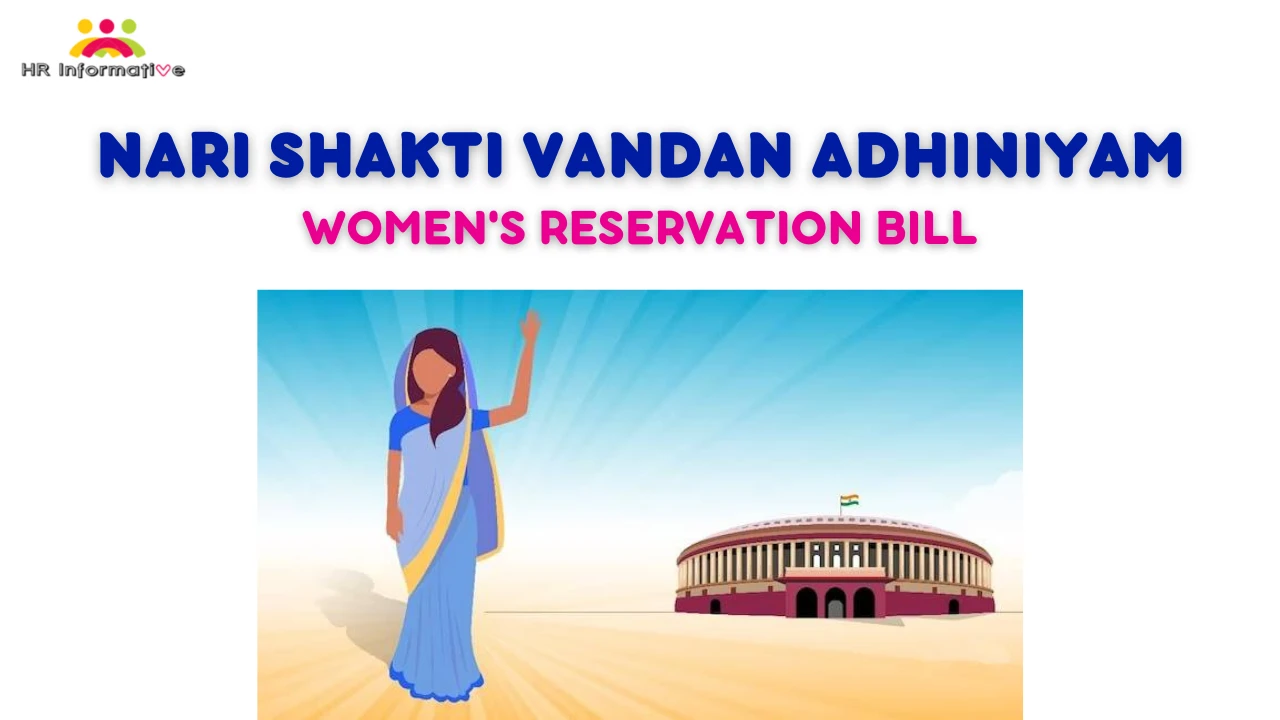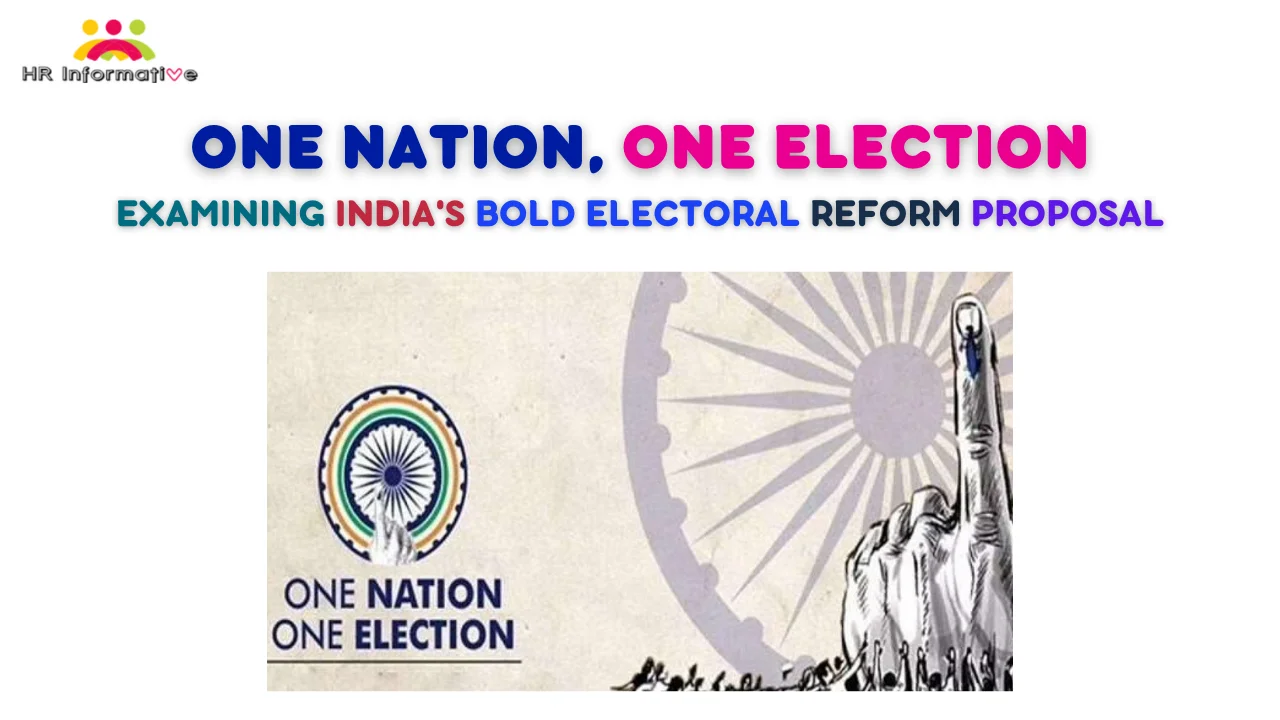The Nari Shakti Vandan Adhiniyam, or Women’s Reservation Bill, is a proposed constitutional amendment bill in India that seeks to reserve one-third of seats in the Lok Sabha and State Assemblies for women. The bill was first introduced in Parliament in 1996.
Key Points
Here are the key points of the Nari Shakti Vandan Adhiniyam:
- Reservation Period: The bill proposes a 15-year reservation period, with quotas for Scheduled Castes (SCs) and Scheduled Tribes (STs) within the reserved seats for women.
- Delimitation: The reservation will come into effect after a delimitation exercise is undertaken. As per existing law, the next delimitation exercise can only be conducted after the first census to be taken post 2026.
- Rotation of Seats: Seats reserved for women will be rotated after each delimitation exercise.
- Implementation: The bill will require to be passed by both houses of Parliament and ratified by at least half of the state legislatures before it can become law.
If passed, the Nari Shakti Vandan Adhiniyam will have a significant impact on Indian politics. It will increase the number of women in Parliament and State Assemblies, and give them a greater voice in policy-making. The bill is expected to benefit all women, but especially those from marginalized communities.
Read Also : One Nation, One Election: Examining India’s Bold Electoral Reform Proposal
Benefits
Here are some of the potential benefits of the Nari Shakti Vandan Adhiniyam:
- Increased Representation of Women in Politics: The bill would increase the number of women in Parliament and State Assemblies, giving them a greater voice in policy-making and decision-making.
- Improved Gender Equality: The increased representation of women in politics could lead to improved gender equality in other areas of society, such as education, employment, and healthcare.
- Better Representation of Marginalized Groups: The bill also includes quotas for SCs and STs within the reserved seats for women, which would help to ensure that these marginalized groups have a greater voice in politics.
- Role Model Effect: The increased presence of women in politics could serve as a role model for girls and young women, and inspire them to pursue careers in politics and public service.
Latest Updates / Current Status
The Nari Shakti Vandan Adhiniyam was passed by the Lok Sabha on 20 September 2023, with 454 votes in favour and two against. The Rajya Sabha passed the bill unanimously on 21 September 2023, with 214 votes in favour and none against.
The bill now awaits the signature of the President of India, which is expected to be granted shortly. Once the bill is signed into law, it will come into effect in the next general elections, which are scheduled to be held in 2029.
नारी शक्ति वंदन अधिनियम के साथ नए सदन की शानदार शुरुआत हुई है। इससे महिलाओं के नेतृत्व में विकास को अभूतपूर्व गति मिलने वाली है। इसे जिस प्रकार से सभी राजनीतिक दलों का ऐतिहासिक समर्थन मिला है, वह विकसित और आत्मनिर्भर भारत के संकल्प की सिद्धि में मील का पत्थर साबित होगा। मैं सभी…
— Narendra Modi (@narendramodi) September 20, 2023
Conclusion
The passage of the Nari Shakti Vandan Adhiniyam is a historic moment for women’s empowerment and gender equality in India. This constitutional amendment will pave the way for greater representation of women in Parliament and State Assemblies, giving women a stronger voice in policy-making. While there is still a long way to go to achieve full gender equality, the bill marks an important milestone in women’s political participation. If implemented effectively, it has the potential to transform the position of women in Indian society. The true test will come at the next general elections in 2029, when one-third of Lok Sabha and State Assembly seats will be reserved for women. This will open new avenues for women leaders while also providing much-needed role models for girls and young women across the country.
FAQs
Q: When was the Nari Shakti Vandan Adhiniyam bill first introduced?
Ans: The bill was first introduced in Parliament in 1996.
Q: What is the Nari Shakti Vandan Adhiniyam?
Ans: The Nari Shakti Vandan Adhiniyam is a proposed constitutional amendment bill in India that seeks to reserve one-third of seats in the Lok Sabha and State Assemblies for women.
Q: Why is the Nari Shakti Vandan Adhiniyam important?
Ans: The Nari Shakti Vandan Adhiniyam is important because it would increase the representation of women in Indian politics. Women are currently underrepresented in Indian politics, with only 14.4% of seats in the Lok Sabha and 12.6% of seats in State Assemblies held by women. The Nari Shakti Vandan Adhiniyam would help to address this gender imbalance and give women a greater voice in policy-making and decision-making.
Q: How would the Nari Shakti Vandan Adhiniyam be implemented?
Ans: The Nari Shakti Vandan Adhiniyam would be implemented through a constitutional amendment. This means that it would need to be passed by both houses of Parliament and ratified by at least half of the state legislatures before it can become law.
Q: When would the Nari Shakti Vandan Adhiniyam come into effect?
Ans: The Nari Shakti Vandan Adhiniyam would come into effect after a delimitation exercise is undertaken. Delimitation is the process of redrawing the boundaries of electoral constituencies to reflect changes in population. As per existing law, the next delimitation exercise can only be conducted after the first census to be taken post 2026. This means that the Nari Shakti Vandan Adhiniyam is unlikely to come into effect before the 2024 Lok Sabha elections.
You May Read Also :




